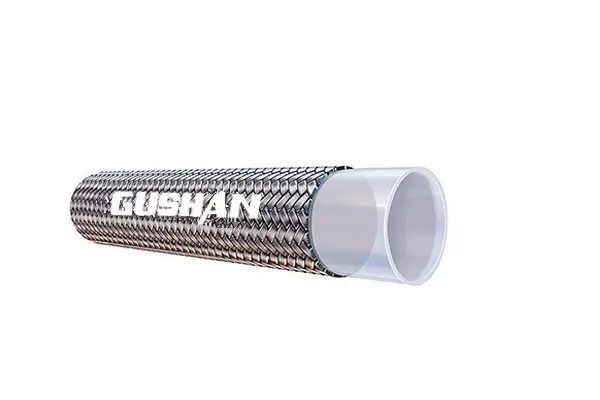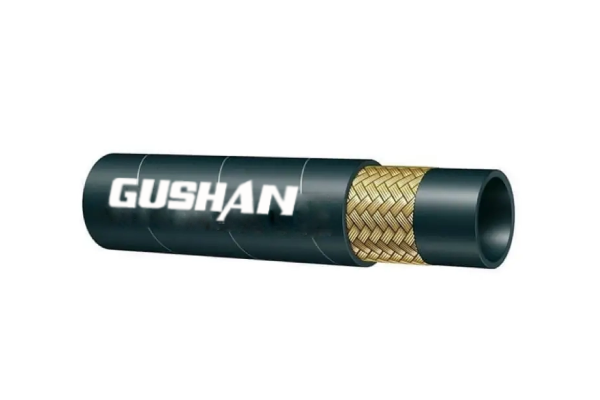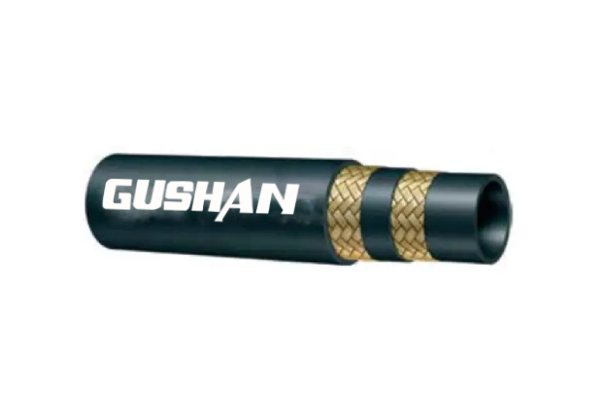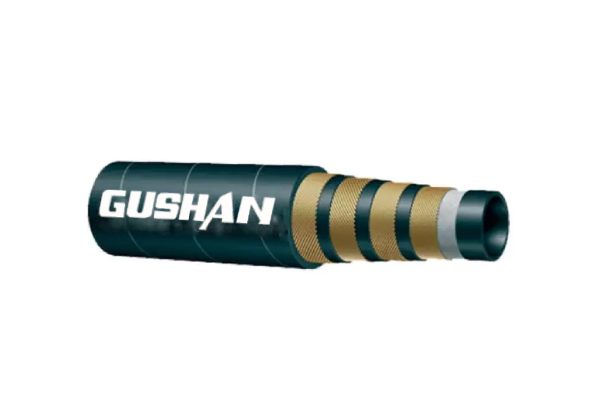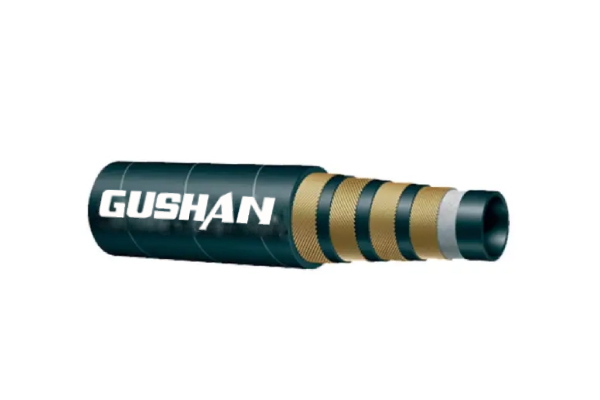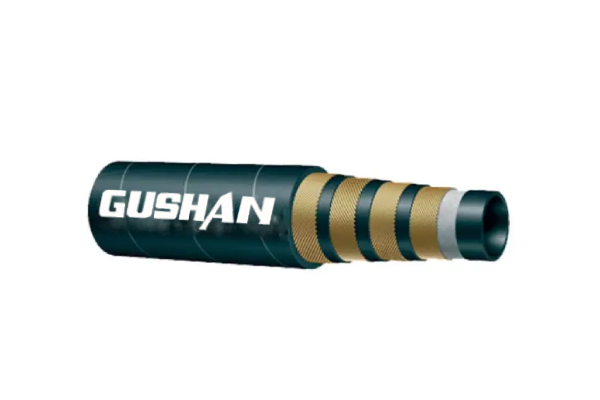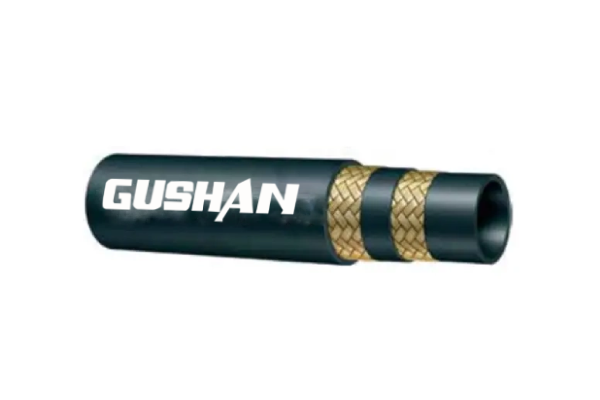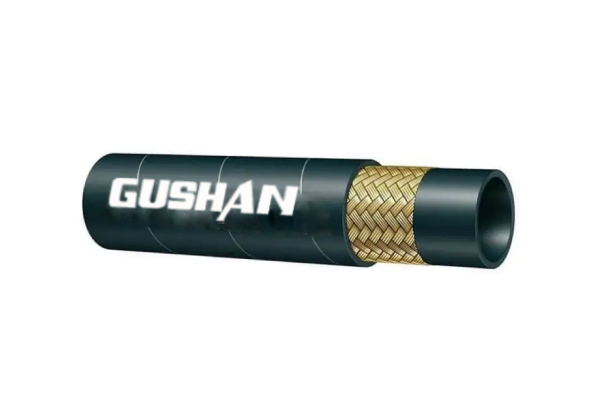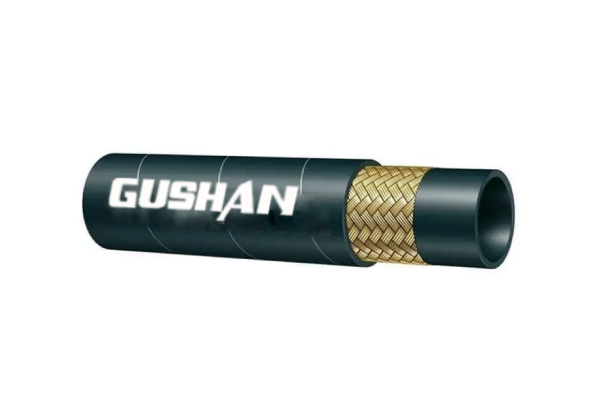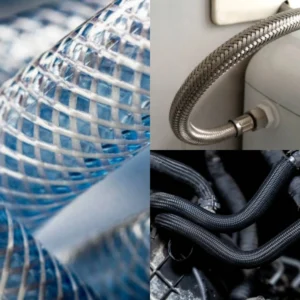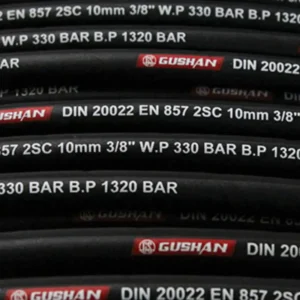Hydraulic hoses are the unsung heroes of many industries, powering a wide range of machinery and equipment. From construction sites to manufacturing plants, these flexible tubes play a crucial role in transmitting high-pressure hydraulic fluid, enabling efficient and powerful operations.
In this blog post, we’ll delve into the diverse applications of hydraulic hoses, exploring how they contribute to the smooth functioning of various industries.
What Are Hydraulic Hoses
Recommended Hydraulic Hoses
-
SAE 100 R14
-
SAE 100R 1A / DIN EN853 1ST
-
SAE 100R 2A / DIN EN853 2ST
-
SAE 100R12
-
SAE 100R13
-
SAE 100R15
-
SAE 100R16
-
SAE 100R17
-
SAE 100R1AT/ DIN EN853 1SN
Hydraulic hoses are flexible tubes designed to transport hydraulic fluid between components in a hydraulic system. They handle high pressure, heat, and mechanical stress, allowing machines to operate smoothly. Choosing the right hose ensures efficiency, safety, and long-lasting performance in industrial and mobile equipment.
- High-Pressure Transmission – Hydraulic hoses are engineered to withstand extreme pressures, enabling the efficient transfer of fluid to actuators, valves, and pumps. Their reinforced layers prevent bursts, ensuring the system operates safely and reliably under demanding conditions.
- Flexibility and Movement – Unlike rigid pipes, hydraulic hoses can bend and flex, accommodating dynamic movement between components. This flexibility reduces stress on connections and allows equipment to function in tight spaces without compromising fluid flow.
- Durability and Material Strength – Constructed with synthetic rubber, thermoplastics, or reinforced layers, hydraulic hoses resist abrasion, heat, and chemical exposure. Their robust design ensures long service life, even under harsh industrial or mobile working environments.
- Variety of Sizes and Types – Hydraulic hoses come in multiple diameters, lengths, and reinforcement types, including braided and spiral. Selecting the correct type ensures compatibility with system requirements, optimal pressure handling, and safe operation.
- Safety and Maintenance – Regular inspection and proper installation of hydraulic hoses prevent leaks, ruptures, and system failure. Using high-quality hoses and ferrules reduces downtime and enhances workplace safety while maintaining efficient hydraulic system performance.
What Are Hydraulic Hoses Used For?
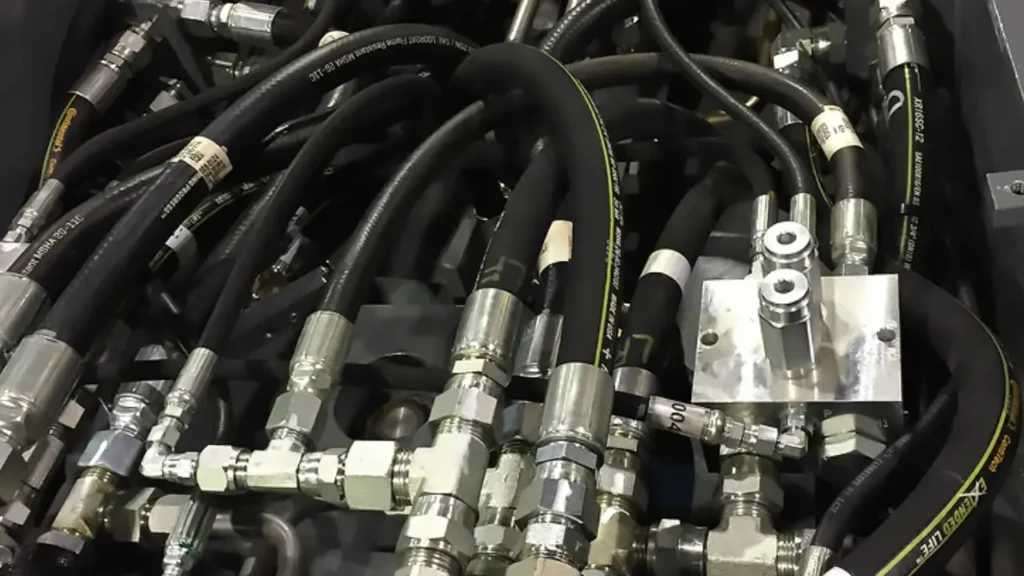
Hydraulic hoses are essential components in a wide range of industries, powering a variety of machinery and equipment. They are flexible tubes designed to transmit high-pressure hydraulic fluid between components in a hydraulic system.
Here you can find Hydraulic hose applications in a vast array of industries:
Construction and Mining
- Excavator: Hydraulic hoses control the intricate movements of the arm, bucket, and other components, allowing for precise digging and material handling.
- Bulldozer: Hoses power the blade and ripper, enabling efficient earthmoving and grading operations.
- Crane: Hydraulic hoses operate the hoisting and slewing mechanisms, facilitating the lifting and positioning of heavy loads.
- Forklift: Hoses control the lifting and tilting of the forks, enabling efficient material handling in warehouses and construction sites.
- Mining Equipment: Hydraulic hoses power a variety of mining machinery, including drill rigs, rock breakers, and conveyor systems, optimizing extraction and transportation processes.
Agriculture
- Tractor: Hydraulic hoses power the lift arms, steering systems, and various implements, enhancing productivity and versatility.
- Harvester: Hoses control the cutting, threshing, and conveying mechanisms, streamlining the harvesting process.
- Combine Harvester: Hoses power the cutting, threshing, and conveying systems, maximizing efficiency in crop harvesting.
Industrial Manufacturing
- Machine Tools: Hydraulic hoses power the movement of machine tools, such as lathes, milling machines, and drilling machines, ensuring precise and efficient machining operations.
- Presses: Hoses provide the hydraulic power to operate presses for forming and shaping metal and plastic components.
- Injection Molding Machines: Hoses control the injection and clamping mechanisms, enabling the production of intricate plastic parts.
- Material Handling Equipment: Hoses power various material handling equipment, such as conveyors, lifts, and robotic arms, optimizing material flow and logistics.
Automotive
- Power Steering: Hydraulic hoses transmit fluid to the power steering pump and steering gear, providing effortless steering control.
- Brake Systems: Hoses transfer hydraulic pressure to the brake calipers, enabling reliable and efficient braking.
- Suspension Systems: Hoses power shock absorbers and other suspension components, ensuring optimal vehicle handling and ride comfort.
Aerospace
- Aircraft Landing Gear: Hydraulic hoses control the extension and retraction of landing gear, ensuring safe and reliable aircraft operations.
- Flight Control Systems: Hoses power actuators for controlling flight surfaces, such as ailerons, elevators, and rudders, enabling precise flight control.
Marine
- Ship Steering Systems: Hydraulic hoses power the steering gear, enabling ships to maneuver efficiently.
- Winches: Hoses operate the winching mechanism, used for various tasks, such as anchoring, mooring, and cargo handling.
- Cranes: Hoses control the lifting and lowering of loads, facilitating cargo handling and construction operations.
Material Handling
- Forklifts: Hydraulic hoses power the lifting and tilting of the forks, enabling efficient material handling in warehouses and construction sites.
- Conveyor Systems: Hoses control the movement of materials along conveyor belts, optimizing material flow and logistics.
By understanding the specific applications of hydraulic hoses in these industries, we can appreciate their crucial role in powering modern machinery and equipment.
Can Hydraulic Hose Be Used for Diesel Fuel
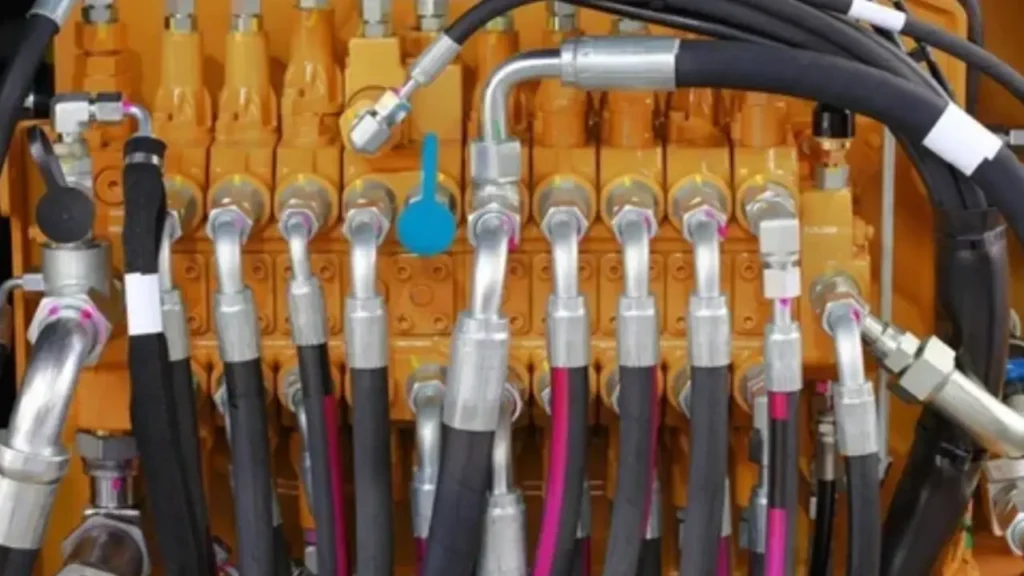
Can you use hydraulic hose for diesel fuel line?
No, a standard hydraulic hose is not suitable for diesel fuel.
While some hydraulic hoses are specifically designed and rated for use with diesel fuel, standard hydraulic hoses are not. They are primarily designed to handle high-pressure hydraulic fluids, such as hydraulic oil.
Using a standard hydraulic hose for diesel fuel can lead to several issues:
- Material Compatibility: Standard hydraulic hoses may not be compatible with the chemical properties of diesel fuel, leading to degradation and potential leaks.
- Pressure Rating: Diesel fuel lines may require different pressure ratings than hydraulic hoses.
- Fire Hazard: Diesel fuel is flammable, and using an incorrect hose could increase the risk of fire.
To ensure safety and reliability, it’s crucial to use a fuel-resistant hose specifically designed for diesel fuel applications. These hoses are made from materials that are compatible with diesel fuel and can withstand the required pressure and temperature conditions.
If you have any doubts or questions about the suitability of a particular hose for your application, it’s always best to consult with a hydraulics or fuel system expert.
Can Hydraulic Hose Be Used for Gasoline
No, a standard hydraulic hose is not suitable for gasoline.
While some hydraulic hoses are specifically designed and rated for use with gasoline, standard hydraulic hoses are not. They are primarily designed to handle high-pressure hydraulic fluids, such as hydraulic oil.
Using a standard hydraulic hose for gasoline can lead to several issues:
- Material Compatibility: Standard hydraulic hoses may not be compatible with the chemical properties of gasoline, leading to degradation and potential leaks.
- Pressure Rating: Gasoline lines may require different pressure ratings than hydraulic hoses.
- Fire Hazard: Gasoline is highly flammable, and using an incorrect hose could increase the risk of fire.
To ensure safety and reliability, it’s crucial to use a fuel-resistant hose specifically designed for gasoline applications. These hoses are made from materials that are compatible with gasoline and can withstand the required pressure and temperature conditions.
Can Hydraulic Hose Be Used for Propane
No, a hydraulic hose is not suitable for propane.
Hydraulic hoses are designed to handle high-pressure hydraulic fluid, typically oil-based. They are not designed to handle flammable gases like propane.
Using a hydraulic hose for propane can lead to serious safety risks, such as:
- Hose Failure: The hose may not be able to withstand the pressure and temperature of propane, leading to leaks or ruptures.
- Fire Hazard: Propane is highly flammable, and a leak or rupture could lead to a fire or explosion.
To ensure safety, always use a hose specifically designed for propane. These hoses are made from materials that are resistant to propane and can withstand the required pressure and temperature conditions.
Always consult with a qualified professional or refer to the manufacturer‘s guidelines to select the appropriate hose for your specific application.
Can You Use Hydraulic Hose for Air Compressor
No, a hydraulic hose is not suitable for use with an air compressor.
Hydraulic hoses are designed to handle high-pressure hydraulic fluid, typically oil-based. They are not designed to handle the high pressure and volume of compressed air.
Using a hydraulic hose for an air compressor can lead to:
- Hose Failure: The hose may not be able to withstand the high pressure and volume of air, leading to leaks or ruptures.
- Reduced Airflow: The hose’s internal structure may restrict airflow, reducing the efficiency of the air compressor.
- Safety Risks: A failed hose can cause serious injuries or property damage.
To ensure the safe and efficient operation of your air compressor, it’s essential to use an air hose specifically designed for this purpose. These hoses are made from materials that can handle the pressure, temperature, and other conditions associated with compressed air.
Conclusion
Hydraulic hoses are indispensable components in a myriad of industries, powering everything from construction equipment to aerospace systems. By understanding their crucial role and the factors influencing their selection, you can optimize your hydraulic systems for efficiency and reliability.
Ready to elevate your operations with premium hydraulic hoses?
Gushan Rubber offers a comprehensive range of high-quality hydraulic hoses, tailored to meet the diverse needs of various industries. Our commitment to quality, innovation, and customer satisfaction ensures that you receive the best possible solution.
Contact us today to explore our extensive product range and expert services. Don’t compromise on quality. Choose Gushan Rubber.

